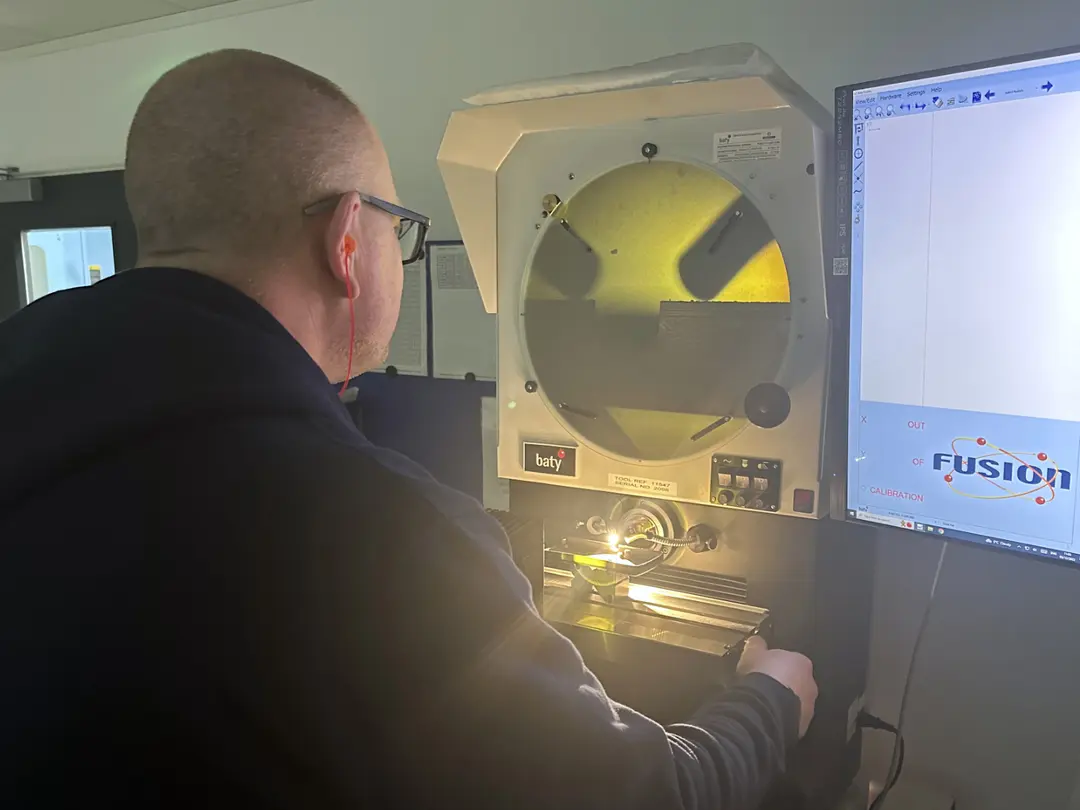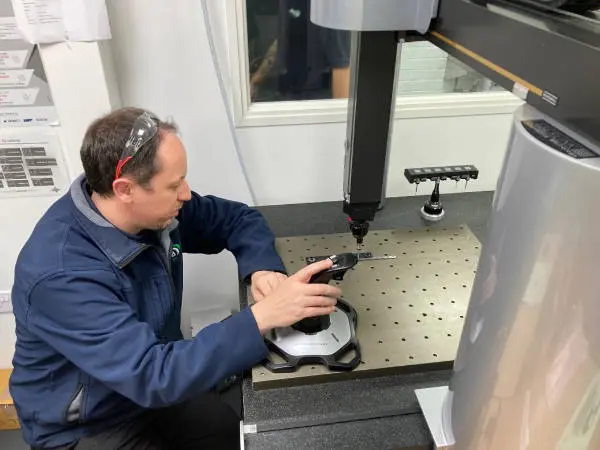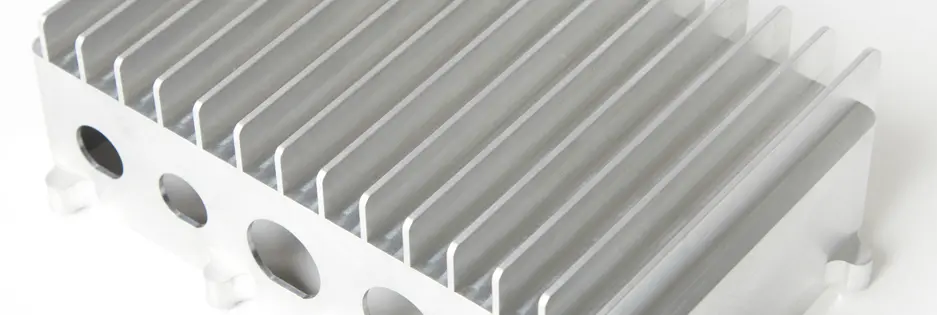 Get a quote
Get a quote

I speak to a lot of purchasing managers who have been disappointed by their current CNC machining supplier. The most common thread is overpromising and underdelivering on quality. Being promised the Rolls Royce of components and receiving a Vauxhall Nova.
Have you been in this situation?
If so, I completely understand how frustrating and stressful it can be. Exceptional quality isn’t just a ‘nice to have’. As a buyer, you’re relying on quality components for the reliability, consistency and performance of your product.
In this blog, I’ll share what good quality assurance looks like so you can make sure you choose a supplier who will deliver the quality you need.
This is probably the first thing you’ll want to be looking at when sizing up a potential CNC machining company to work with.
Reputable CNC machining suppliers proactively prioritise robust quality assurance (QA) measures for consistency of quality.
ISO9001 is the globally recognised standard for quality management. When a CNC machining company has this certification, they have demonstrated the required level of documented processes and traceability.
I’d be very wary of a machining company that doesn’t hold ISO9001 certification. For the record, Penta meets the requirements of ISO9001:2015.
Industry-specific certifications can offer an extra layer of assurance but don’t assume that a company without a certification specific to your industry is no good.
AS9100, a well-known aerospace industry certification, far surpasses ISO9001 and demonstrates an unwavering commitment to precision, reliability, and exacting standards. A buyer in any industry will benefit from this certification.
The key is not to be blinded by specific industry certifications (or lack of). Some companies may lack a particular industry certification but boast strong specialisations in other relevant sectors.

If I had to identify one aspect that will have the single greatest impact on the consistent quality of CNC machined components, it is robust and repeatable processes.
Having first-rate quality some of the time isn’t enough. So how is a prospective CNC machining partner ensuring consistency when it comes to quality?

When starting up discussions on working together, these are two of the key documented processes you’ll want to discuss:
An important indicator of a CNC machining supplier’s commitment to quality processes is whether they adopt a QMS (Quality Management System). A QMS is a formailsed system that documents processes, procedures and responsibilities for achieving quality objectives and outcomes.At Penta, our QMS encompasses the planning, quality control, quality assurance, and continuous improvement of quality across the business. It is a reference point for our company wide quality standards throughout preparation, production and inspection – to ensure we deliver consistently for our customers.
Perhaps the most important documented process of all – the inspection process!A well-documented process detailing multiple inspections throughout production will ensure every component meets your exacting specifications and minimise non-conformance issues.A comprehensive quality inspection process may look like this:
A reputable CNC machining company should have a dedicated and fully trained inspection team.This team will closely examine components for dimensional accuracy, tolerance, surface finish, and roughness.
To do this, they should use a range of specialist equipment. Here are some of the key bits of kit we use here at Penta:

Maintaining CNC machines at their peak performance is crucial for consistent manufacturing quality. Reputable suppliers prioritise regular maintenance and preventive measures to uphold operational efficiency and precision.
Through proactive maintenance and vigilant monitoring, suppliers minimise downtime, prevent errors, and safeguard the integrity of their machining processes. When evaluating potential partners, feel free to request documentation of their systematic machine maintenance practices.
In addition to machine upkeep, reputable suppliers place a high emphasis on equipment calibration. Regular calibration ensures the accuracy of instrumentation, essential for delivering components with impeccable precision. Suppliers typically conduct annual calibrations to uphold the integrity of their tools and instrumentation.
As you consider partnering with a CNC machining company, don't hesitate to inquire about their calibration protocols to ensure precision and reliability in manufacturing.
Does your CNC machining supplier or a prospective supplier foster a culture of continuous improvement?Continuous improvement goes beyond simply meeting specifications; it’s about innovation, constantly seeking ways to refine processes, identifying areas for betterment, and ultimately, ensuring that each component produced is of the highest quality.
This is an area we are very passionate about at Penta – one of our core values is ‘striving for improvement’, so it’s in our DNA.
Here are some ways a CNC machining company should be ingratiating continuous improvement into their production process:
At the heart of quality assurance lies a collaborative relationship between a buyer of machined parts and the CNC machining supplier. This should be based on transparency, communication, and mutual trust.
To find a supplier that is willing to work with you so closely, you’re going to need to do your due diligence.
You can read more about getting what you want from your CNC Machining partner in our free ULTIMATE GUIDE ebook – which gives you more tips on what to look out for when assessing the quality credentials of a CNC machining supplier:
Here at Penta, not only are we obsessed with quality, we also love talking to prospective customers about quality. If you’d like to quiz us about our quality credentials or even arrange to come in and see for yourself, we’d love to hear from you.Give the Penta team a call on 023 9266 8334 or email <sales-email>

Aesthetics vs functionality…the ongoing conflict in the minds of product designers and engineers. In this blog we consider both Aethetic and Functional component design, how you can balance the two and consider some common trade-offs.